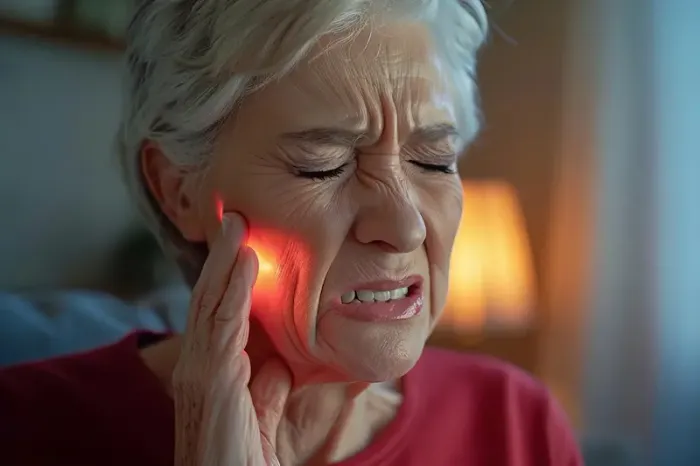Bell's Palsy Overview and Management
Know about Bell’s palsy, its symptoms, causes, diagnosis, treatment and management. Learn when to seek medical help and more.

Written by Dr. Dhankecha Mayank Dineshbhai
Reviewed by Dr. Vasanthasree Nair MBBS
Last updated on 31st Aug, 2025

Introduction
Facing sudden weakness or paralysis on one side of your face can be alarming. If this has happened to you, you might be experiencing Bell’s Palsy, a condition that affects the facial nerves. The good news is that Bell’s Palsy is usually temporary, and most people recover fully with proper care.
In this article, we’ll explain what Bell’s Palsy is, its symptoms, causes, and how you can manage it effectively.
What Is Bell’s Palsy?
Bell’s Palsy is a sudden, temporary weakness or paralysis of the facial muscles, usually affecting one side of the face. It occurs when the facial nerve (7th cranial nerve), which controls facial expressions, becomes inflamed or compressed. This leads to drooping, difficulty in smiling, closing the eye, or making facial expressions.
While Bell’s Palsy can be distressing, it is not life-threatening, and most people recover within a few weeks to months.
Consult a Neurologist for Personalised Advice
Symptoms of Bell’s Palsy
The symptoms appear suddenly and may include:
• Facial drooping on one side (most noticeable when smiling or speaking).
• Difficulty closing one eye, leading to dryness or excessive tearing.
• Drooling due to weakened lip control.
• Loss of taste on the front part of the tongue.
• Increased sensitivity to sound in one ear.
• Pain or discomfort around the jaw or behind the ear (sometimes before paralysis begins).
If you experience these symptoms, consult a doctor to rule out other serious conditions like a stroke.
What Causes Bell’s Palsy?
The exact cause is unknown, but experts believe it may be linked to:
• Viral infections (such as herpes simplex, which causes cold sores).
• Swelling or inflammation of the facial nerve.
• Diabetes or high blood pressure may increase the risk.
• Pregnancy, especially in the third trimester.
• A weakened immune system.
Unlike a stroke, Bell’s Palsy does not affect other parts of the body (like arm or leg weakness).
How Is Bell’s Palsy Diagnosed?
A doctor can diagnose Bell’s Palsy by examining your facial movements and ruling out other conditions. Tests may include:
• Physical examination (checking for muscle weakness).
• Blood tests (to detect infections like Lyme disease).
• MRI or CT scans (to rule out tumours or strokes).
Early diagnosis helps in better recovery.
Get Your Health Assessed
Treatment and Management
While Bell’s Palsy often improves on its own, treatment can speed up recovery and prevent complications.
1. Medications
• Corticosteroids (like prednisone) – Reduce nerve swelling.
• Antiviral drugs – If a viral infection is suspected.
• Eye drops or ointments – To prevent dryness if the eye doesn’t close properly.
2. Home Care & Lifestyle Tips
• Protect your eye – Use artificial tears and an eye patch at night.
• Facial exercises – Gentle massages and movements can help regain muscle strength.
• Warm compresses – Reduce pain and improve blood flow.
• Eat soft foods – If chewing is difficult.
• Avoid stress – Stress can slow recovery.
3. Physical Therapy
• A physiotherapist can guide you with facial exercises to restore movement.
Recovery Time
Most people start seeing improvement within 2-3 weeks and fully recover in 3-6 months. However, in rare cases, some muscle weakness may persist.
When to See a Doctor?
Seek immediate medical help if you experience:
• Sudden facial weakness (to rule out stroke).
• No improvement after 3-4 weeks.
• Severe pain or vision problems.
Final Thoughts
Bell’s Palsy can be unsettling, due to its symptoms like facial drooping, difficulty closing one eye and drooling, but with proper care, diagnosis and treatment, most people recover completely. If you or a loved one is experiencing symptoms, consult a doctor for the right treatment plan.
Consult a Neurologist for Personalised Advice
Consult a Neurologist for Personalised Advice

Dr. Aditendraditya Singh Bhati
Neurosurgeon
18 Years • MBBS(2004), DNB Neurosurgery(2014); MNAMS; Fellow Neuroendoscopy
Delhi
Apollo Hospitals Indraprastha, Delhi
(100+ Patients)

Dr. Ganeshgouda Majigoudra
Neurologist
10 Years • MBBS, MD ( GENERAL MEDICINE) DM (NEUROLOGY)
Bengaluru
Apollo Clinic, JP nagar, Bengaluru

Dr. Sarthak Mehta
Neurologist
6 Years • MBBS , MS Mch ( Neuro )
Bengaluru
Apollo Clinic, JP nagar, Bengaluru

Dr. E Prabhakar Sastry
General Physician/ Internal Medicine Specialist
40 Years • MD(Internal Medicine)
Manikonda Jagir
Apollo Clinic, Manikonda, Manikonda Jagir
(125+ Patients)
Dr. Annakula Ramu
Neurologist
7 Years • MBBS, MD General Medicine, DM Neurology
Jagtial
Sairam Neuro and Children Hospital, Jagtial
Consult a Neurologist for Personalised Advice

Dr. Aditendraditya Singh Bhati
Neurosurgeon
18 Years • MBBS(2004), DNB Neurosurgery(2014); MNAMS; Fellow Neuroendoscopy
Delhi
Apollo Hospitals Indraprastha, Delhi
(100+ Patients)

Dr. Ganeshgouda Majigoudra
Neurologist
10 Years • MBBS, MD ( GENERAL MEDICINE) DM (NEUROLOGY)
Bengaluru
Apollo Clinic, JP nagar, Bengaluru

Dr. Sarthak Mehta
Neurologist
6 Years • MBBS , MS Mch ( Neuro )
Bengaluru
Apollo Clinic, JP nagar, Bengaluru

Dr. E Prabhakar Sastry
General Physician/ Internal Medicine Specialist
40 Years • MD(Internal Medicine)
Manikonda Jagir
Apollo Clinic, Manikonda, Manikonda Jagir
(125+ Patients)
Dr. Annakula Ramu
Neurologist
7 Years • MBBS, MD General Medicine, DM Neurology
Jagtial
Sairam Neuro and Children Hospital, Jagtial










